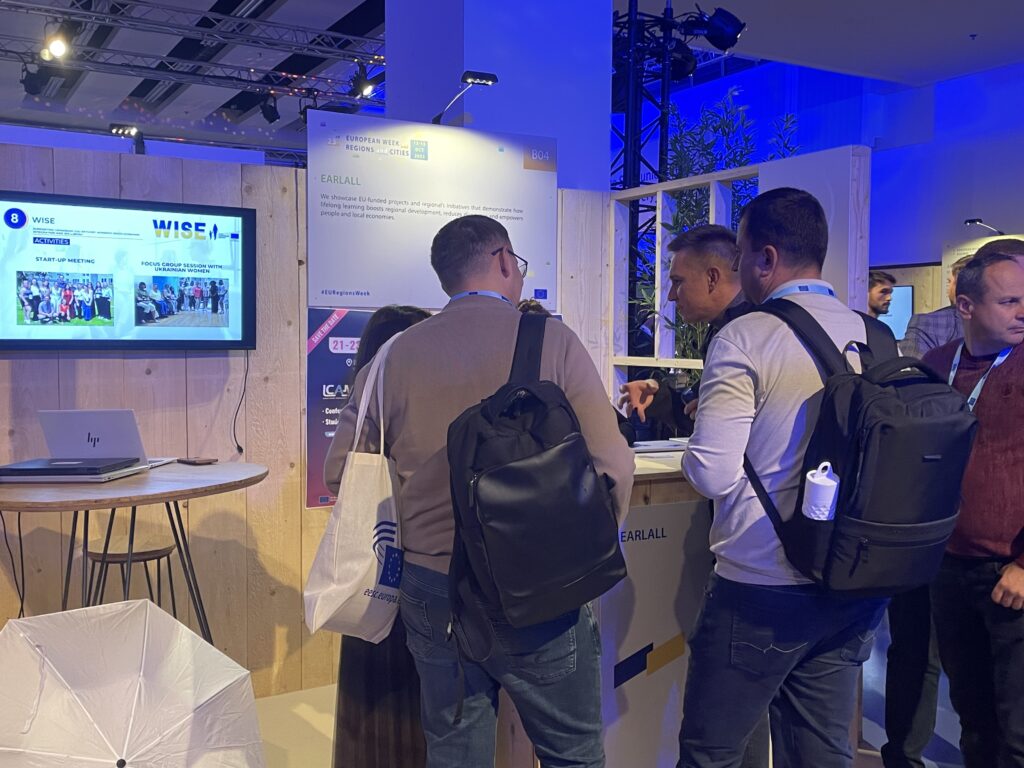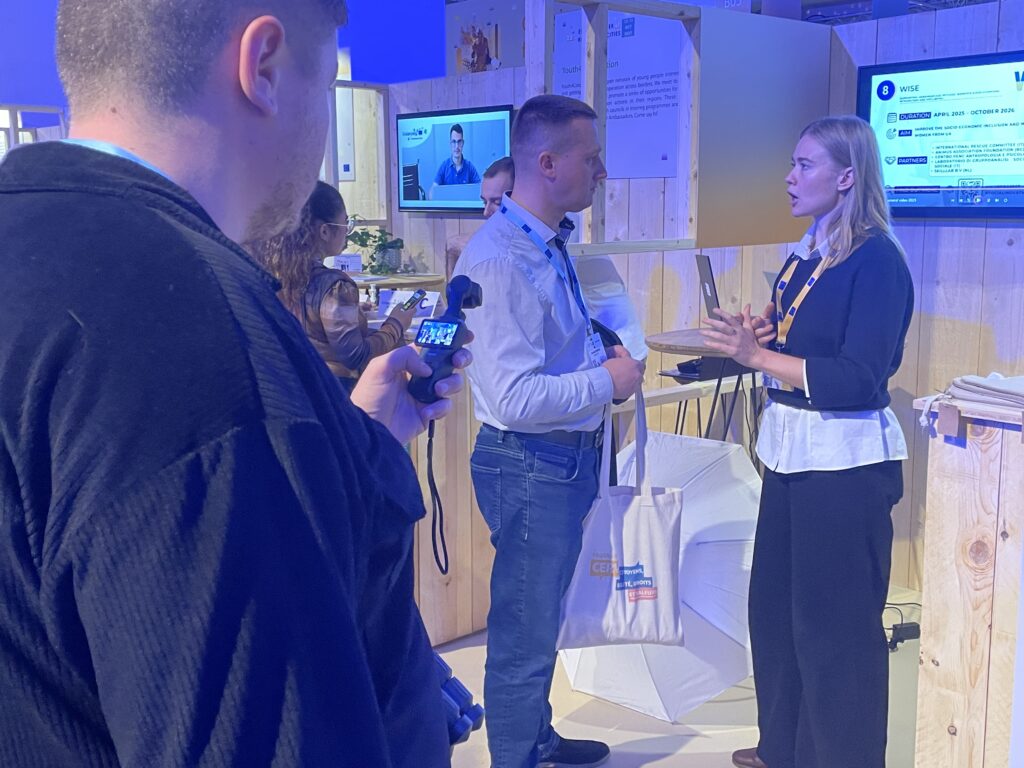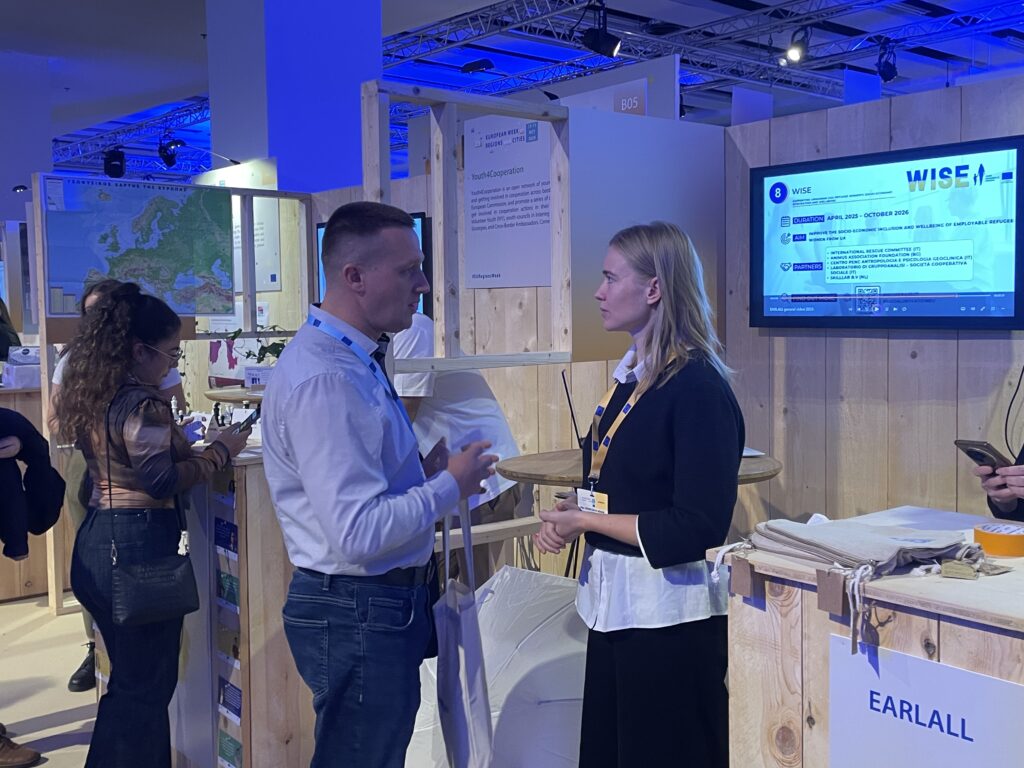WISE project at the European Week of Regions and Cities 2025
16/10/2025

The European Week of Regions and Cities 2025 was an excellent opportunity to promote the WISE project and raise awareness about its mission to support the socio-economic inclusion and wellbeing of employable refugee women from Ukraine in Italy and Bulgaria.
Represented by EARLALL (European Association of Regional and Local Authorities for Lifelong Learning), WISE was featured at the association’s stand in Brussels (14–15 October), reaching a wide European audience of policymakers, local authorities, and stakeholders working in the fields of social inclusion, gender equality, and employment.
Promoting inclusion and empowerment
WISE aims to improve the socio-economic inclusion and wellbeing of employable refugee women from Ukraine by piloting and scaling up Holistic Support Centres (HSCs) that combine a trauma-informed and gender-sensitive approach with employment and social support services. The model builds on the Women and Girls Safe Space (WGSS) methodology, empowering women to rebuild their lives, gain new skills, and access meaningful work opportunities.
Connecting with Ukrainian municipalities and stakeholders
During the event, numerous representatives of Ukrainian municipalities and regions, alongside European partners, expressed great interest in the WISE initiative. Many were delighted to see a project addressing the needs and empowerment of Ukrainian women at the European level.
The conversations at the EARLALL stand provided an excellent opportunity to exchange experiences, share good practices, and explore how similar approaches could be implemented locally. The promotion of WISE also served to expand its network of stakeholders across Europe, strengthening partnerships and visibility for future collaboration in the field of inclusion and women’s wellbeing.


In addition, Olga from the EARLALL Secretariat gave an interview during the event, highlighting the importance of cooperation between regions, local authorities, and civil society in ensuring comprehensive support for refugee women.
Strengthening European collaboration
By showcasing WISE at the EU Regions Week 2025, EARLALL contributed to bringing the project’s message to the European stage, underlining that inclusion, wellbeing, and skills development are central to building resilient and compassionate communities.

